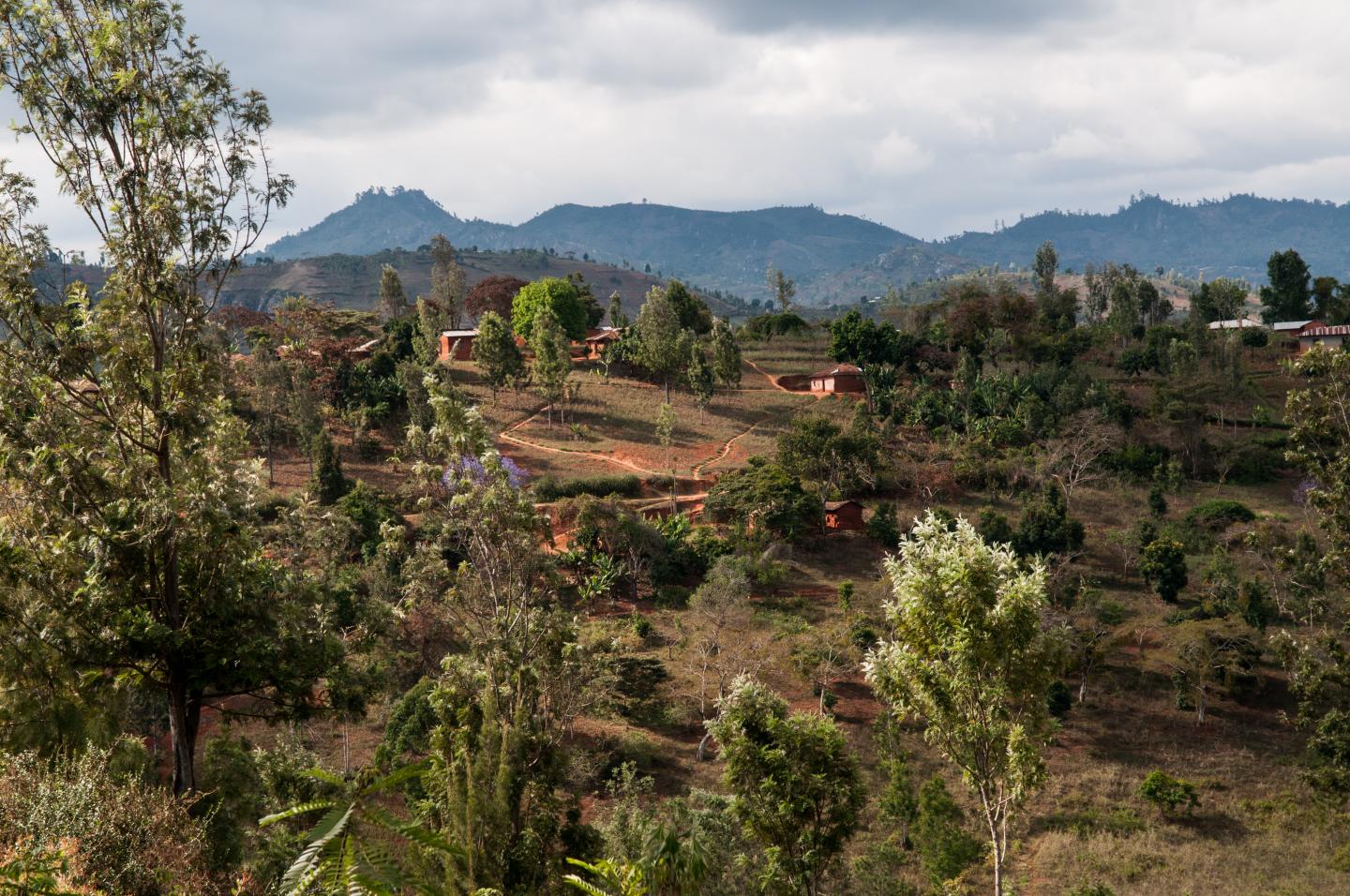The GeoFarmer app allows community workers and smallholders to easily collect and share information on climate-related agricultural interventions. Development agencies can use the tool to gather effective feedback and to respond to emergent climate needs

Credit: Georgina Smith – International Center for Tropical Agriculture
When a drought-bringing El Niño hits, farmers are the first to take the brunt of the climate stress. Quickly obtaining information on the fallout is essential for development agencies, government and farmers organizations to respond efficiently. But poor connectivity and slow flows of information are an obstacle. An app tested with thousands of farmers in Colombia and Africa showed that farmers can quickly produce and share vital information when climate problems arise.
The GeoFarmer app was deployed and tested in Colombia, Ghana, Tanzania and Uganda, and was developed by the International Center for Tropical Agriculture (CIAT) in collaboration with the University of Salzburg. GeoFarmer allowed farmers to collect and share geospatial data on weather, farm conditions including soil and crop types, and monitor the adoption of techniques to make farms more productive and resilient to climate change.
Even where internet connectivity was limited, farmers produced and shared tens of thousands of data points over short periods. The findings were published this February in Computers and Electronics in Agriculture.
“An app like this gives farmers a voice and helps close the communication gap between people working in the development sector, researchers working on development technologies, and farmers,” said Andrew Jarvis, a co-author and director of CIAT’s Decision and Policy Analysis research area. “We’re better at understanding farmers’ needs and we’re more responsive to emerging opportunities and unanticipated challenges.”
Agriculture is one of the globe’s least technologically developed sectors, and this is especially true for most of the world’s half-billion smallholder farmers. Improving their precarious situation is often the target of global development agencies, but interventions sometimes fall short of desired outcomes due to the top-down nature of some recommendations. Research has shown that farmers are more likely to make decisions based on input from peers, and Internet Communication Technologies (ICTs) such as GeoFarmer show great potential to increase communication between smallholders.
“We’re making farmers not only the end-beneficiary, but rather an actor in the whole development process,” Jarvis said. “They’re able to receive information more effectively, they are empowered by having more information, and the development project is more relevant because their preferences are being fed back much better.”
Climate-smart, affordable tech
GeoFarmer was tested and deployed alongside development projects, including climate-smart villages that are part of the CGIAR Research Program on Climate Change, Agriculture and Food Security (CCAFS).
In Jirapa-Lawra, a village in Northern Ghana’s Guinea Savannah woodlands, the app was used to gather 60,000 data records from five blocks of surveys in a two-week period. The data was mostly collected in offline mode and uploaded into a cloud storage system when local data-collection facilitators were within range of the community’s mobile network.
Farmers in Lushoto, in the Usambara Mountains in Northeastern Tanzania, used GeoFarmer as part of a citizen scientist project to test and manage climate-smart agricultural practices. One practice included the adoption of manure composting to increase productivity, reduce costs and diminish reliance on chemical fertilizers. GeoFarmer was used to monitor awareness, knowledge and use of the practice. (See figure.)
In Cauca, a department of southwestern Colombia, 1,240 farmers were surveyed using GeoFarmer’s interactive voice response (IVR) calling system to gather perceptions of climate risks and other risks facing agricultural activities. The IVR system, which delivered five-question surveys that were completed in 2-3 minutes, had a lower response rate than typical face-to-face surveys but collected useful data at a far greater rate and volume at a much lower cost than traditional surveying techniques.
Maps and clouds
The GeoFarmer app transmitted data to a cloud-based storage system and was made accessible through a web-based interface. The app allowed farmers to share photos and comments related to the agricultural projects. The information was georeferenced so content could be properly contextualized with the app’s map viewer.
Future iterations of GeoFarmer aim to expand beyond sharing comments and photos to include discussion, voting and rating mechanisms to help farmers determine best practice solutions to new challenges. Developers will also continue to expand the app’s ease-of-use to facilitate greater technology adoption across the digital literacy divide present in some smallholder communities.
“For the next phase, we aim to integrate GeoFarmer with other mobile apps to solve the problem of missing interoperability of data collected by different actors from research, academia, non-profit, governmental institutions, and the private sector,” said Anton Eitzinger, lead author and climate change scientist at CIAT. “The problem of missing interoperability of data between different ICT systems hinders the flow of data, information, and insights that would have the potential to alleviate some of the impacts from climate risks for farmers. Integrating the different ICT systems in a country would help to establish innovative monitoring systems and produce smart metrics for the supply side, and to innovate around the development of unique services for the farmer.”
###
Funders and collaborators
This work was implemented as part of the CGIAR Research Program on Climate Change, Agriculture and Food Security (CCAFS) – led by CIAT – and carried out with support from CGIAR Fund Donors and through bilateral funding agreements. For details, please visit https:/
This study was conducted with collaborators from the University of Munich (Germany), University of Salzburg (Austria), Unversidad de San Francisco de Quito (Ecuador), and École polytechnique fédérale de Lausanne (Switzerland).
Media Contact
Sean Mattson
[email protected]
Related Journal Article
http://dx.




